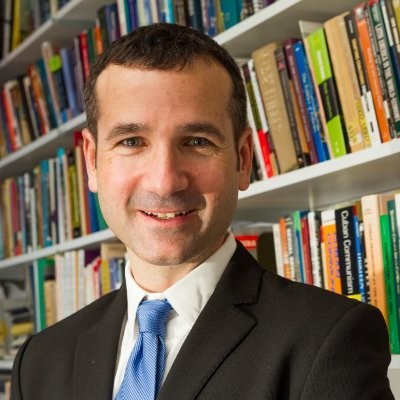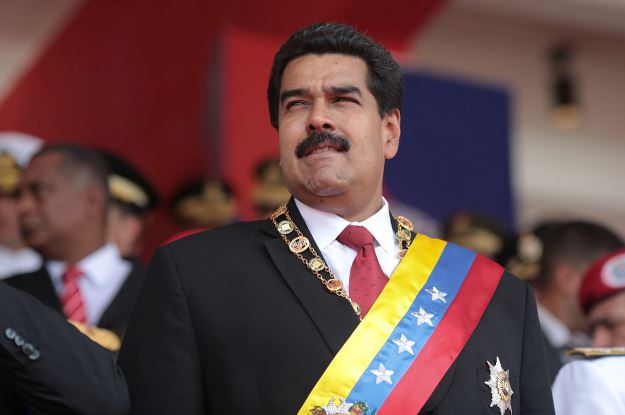Venezuela proved last week that it can still defy regional trends. By suspending the process to carry out a recall referendum on President Nicolás Maduro, Venezuela became the only country in Latin America since the late 1970s to experience the transition to a full dictatorship.
When I started studying Venezuela in the early 1990s, the country was already bucking regional trends. In the 1960s, it inaugurated democracy when most countries were turning authoritarian. Then in the 1990s, Venezuela became an enigma when it failed to stabilize its economy at a time when most other countries in the region, with worse economic crises, managed to control their inflation and debt. Since the 2000s, Venezuela has been odd for a different reason: It morphed, under former President Hugo Chávez, into an increasingly authoritarian regime supported mostly by the left.
Because Chávez did not entirely suppress all democratic institutions, we started calling his regime a hybrid. No doubt, there were other regimes that also became hybrids during this period (Ecuador, Bolivia, Nicaragua, Honduras). But Venezuela led the way. It was also the most militaristic, intolerant of dissent, manipulative of the law, disrespectful of private property, and fiscally nontransparent within this category.
Yet, Venezuela under Chávez never became a new Cuba – as in, a full dictatorship – because it always preserved one minimal standard of democratic life not present on the island: elections. Electoral campaigns under Chávez were never free and fair, but at least they were competitive and mostly on schedule. And, in a couple of them, Chávez accepted defeat.
But in 2016, and especially on October 20, Venezuela crossed a line. It eliminated those minimal standards of democratic life.
The year began with Maduro essentially disregarding every decision made by the democratically-elected legislature, now under control of the opposition. Eight laws were declared null, a record in Venezuela’s history. Maduro subordinated most of the cabinet to a military general, and the administration created an increasing number of barriers to the opposition’s effort to conduct a recall referendum (I’ve counted at least nine). By August, it declared the National Assembly devoid of legality because legislators had sworn in deputies who were not cleared by the courts to be sworn in. Then, early in October and in violation of the constitution, Maduro called for the postponement of gubernatorial elections, saying that the government could not afford them economically. On October 20, the government made the decision to suspend for good the signature-collection process to conduct a recall referendum, effectively disenfranchising the entire opposition. The government also banned several opposition leaders from leaving the country, solidifying a policy started under Chávez and perfected under Maduro of restricting the liberties of opposition leaders.
In short, the most rudimentary elements of minimal democracy – elections, respect for the legislature, and freedoms for opposition leaders and voters – completely disappeared in 2016, and with them any vestiges of democracy. No other democratically elected president from Latin America since the 1980s has crossed this line. Peru’s Alberto Fujimori in 1992 and Guatemala’s Jorge Serrano in 1993 came close, but not this far. They each shut down congresses and abolished many political rights, but the former immediately called for elections, while the latter was repudiated by the courts and allies within his party, forcing him to resign within a week. As of this writing, not a single member of the Supreme Court or official from the ruling party in Venezuela has challenged any of Maduro’s actions.
Of course, democracy in Venezuela did not die suddenly. It died slowly, like a sunset. It all began under Chávez and progressed gradually, and at times, unnoticeably. But in 2016, and on October 20 in particular, the little democratic sun that was still left in the sky disappeared entirely. Sunset turned to sundown.
Sundown will not lead to a peaceful night. Things will be dark in Venezuela, but hardly quiet. The opposition is too strong to sit idle. Disrupting elections is always intensely irritating. At the very least, the National Assembly is likely to have a showdown with the Executive Branch. Over the weekend, the National Assembly declared the president’s actions “a disruption of the constitutional thread.” When a legislature that has been declared illegal by a president proceeds to declare the president himself illegal, you know a major crisis is in the making.
Regardless of what comes next, it is worth noting that Venezuela’s democratic collapse defies trends not just because it is unusual in Latin America’s recent history, but also because of its economic context. Venezuela’s gradual transition to dictatorship occurred mostly in the context of very rapid economic growth and poverty decline, at least until 2013. Venezuela’s boom era (2003-13) constituted the country’s best growth performance in decades. And yet, this was also the period with the worse political performance, at least in terms of the evolution of political and civic rights. All of this defies theories about the political benefits of economic growth.
On the other hand, Venezuela’s transition to dictatorship does confirm arguments about how economic growth can play into the hands of anti-pluralist populist movements, and how economic crises (2013-present) help would-be dictators get stronger. Chávez used the oil-generated consumption boom to channel resources towards loyalists, who in turn gave him a blank check to accumulate more power and treat the opposition unfairly. Once economic growth collapsed, right around the time of Chávez’s death in early 2013, the regime panicked. With the end of growth came the end of the regime’s electoral competitiveness.
Maduro responded to this political crisis by channeling the few economic resources available to a narrower constituency than was the case under Chávez. Only the military, the hardliners, and the cronies received support. By protecting this trifecta – to the detriment of almost every other sector of society – Maduro annoyed nearly everyone in Venezuela, but he managed nonetheless to protect the regime. Economic misery, paradoxically, incentivized and permitted the bolstering of authoritarian pillars.
An economic crisis under an ordinary democracy would produce a huge defeat for the incumbent and thus a chance to renew the political system. In a hybrid regime such as the one that Maduro inherited in 2013, an economic crisis mostly helped strengthen the coercive and corrupt side of the state.
So what can be done next? This is a hard question to answer because we cannot draw lessons easily from Latin America any more. As I said, no similar case exists in Latin America since the late 1970s. The two most important mechanisms available to defeat autocracies during the Cold War – coups and armed struggles – seem unavailable in the current political era, rejected by both international actors and Venezuela’s opposition leadership.
My guess is that the only hope is to redouble diplomatic efforts to help convince Chavismo that it is okay to lose elections. This is easier said than done. Part of the problem in Venezuela is that Chavismo is not okay with being an opposition force. It is too used to governing unaccountably and incompetently. As a result, it has a spectacular fear of being out of power, afraid that its wrongdoings will be documented and prosecuted.
Venezuela thus reminds us that democracy requires ruling parties willing to lose. That’s what gives them the courage to hold elections. For all their bravado and belligerent talk, Venezuela’s ruling elites, like those in Cuba, are just extreme examples of political cowardice.
There was a time when Chavismo’s problem with democracy was that it did not tolerate the opposition. Today, the problem with Chavismo is that it cannot tolerate being the opposition. A major diplomatic effort is therefore needed to help the opposition pressure the government, but more fundamentally, to convince the government that it’s okay to be an opposition force. This in turn will require convincing the opposition to think of some form of transitional justice. The problem is that when a ruling party has committed so many abuses, and an opposition feels so aggrieved, thinking in terms of transition and justice is painfully hard for both sides.
—
Corrales is Dwight W. Morrow Professor of Political Science at Amherst College, Amherst, MA, and a member of the Americas Quarterly Editorial Board.









